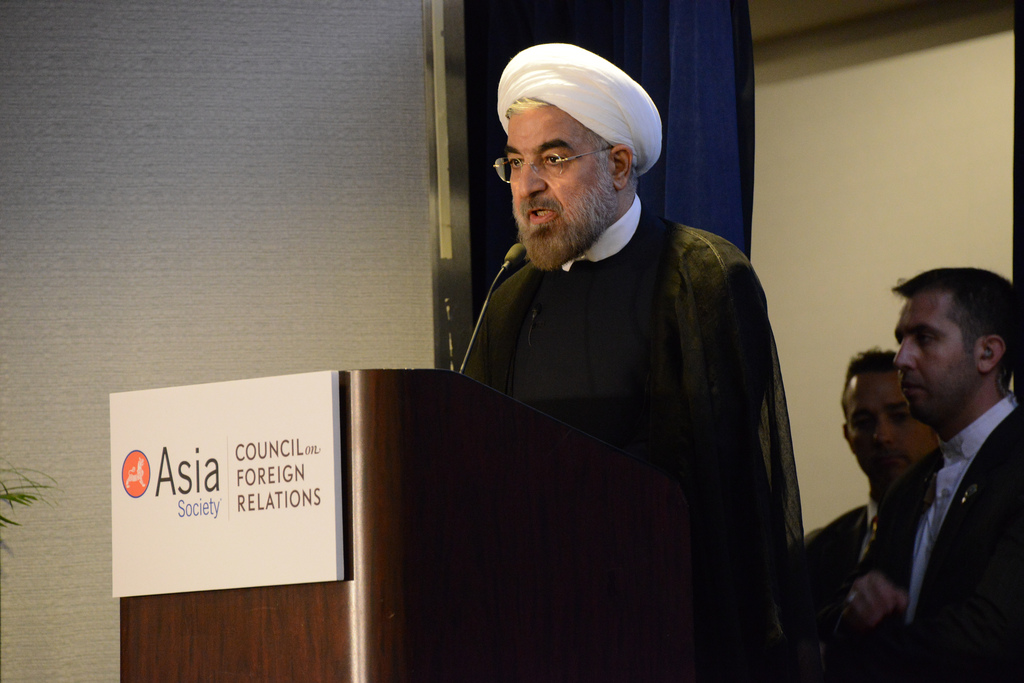In the course of socio-political analysis it easily and widespreadly happens that commentators fall into a line of reductionist approach where the dynamism of discussed phenomenon is highly ignored, several involved actors are all cut to one, political groups are simply tagged as good or bad and eyes are closed to the grey areas. This is of course an easier and undemanding way to scrutinize a situation and draw conclusions but certainly not a truth revealing method. Commentators as such do not bother to well breakdown a case and deliver a minute and detailed analysis. I believe Iran, to some extent, has been a case of such analysis during the past recent years in at least some media.
The recent so-called unprecedented nuclear deal between Iran and 5+1 (permanent members of the Security Council + Germany) is a decent case to be discussed in this regard. Some understand and explain the deal mostly in light of the sanctions and embargoes while the Iranian society passed a number of tremendous ups and downs during the past couple of decades, which is highly neglected. Here comes the reductionist approach: The nuclear issue was subject of a battle between an evil regime and the international community which is now on a good track to be resolved due to a series of wise and targeted economic sanctions. Herein, variety of different active groups (including a spectrum of reformists, moderates, conservatives, hardliners etc.) within Iran’s political structure are all delineated as a sole solid body –an evil regime- versus six international powers tagged as international community whereas the truth might not be as clear as it might seem.
Let me focus on the Iranian side and shed some light on the grey areas which are overlooked in the abovementioned reductionist approach. Iran’s political arena has witnessed severe contests among distinct and sometimes opposing political groups/campaigns after the 1979 revolution and more explicitly after the decease of revolution’s leader, Ayatollah Khomeini in 1989. Gradually, after establishment of the revolution and end of the eight year war between Iran and Iraq (1980-1988), a growing divergence of development and revolution’s furtherance plans between the active political forces got plainer. In the centre of these all was the question of How/if Iran should converse with the West. This was of high importance especially in light of an incident at the very heart of the revolution, the conquest of American embassy by a group of revolutionary students in 1979. At least two distinct attitudes marshalled to battle, a battle, which has lasted up to this day. One of the attitudes got a top priority in foreign affairs on agenda of the fifth elected president in 1997, Mohammad Khatami. He was in support of a dialogue with the world based on mutual respect. Promoting the concept of “dialogue among civilizations” was one of his internationally recognized efforts to develop his peaceful thoughts. Many of foreign embassies got active and reopened in his time and economic affairs boomed. Khatami’s popular thoughts, highly backed by reformists, kept him in power for two successive rounds, despite of all the frictions with the opposition groups.
Nonetheless, Khatami’s measured efforts for rebuilding Iran’s relation with the West got a way disappointing response from the States when Iran was named as axis of evil by George W. Bush in 2002. The reformists were highly criticized by the conservatives and hardliners because of their strategy in foreign affairs and this hand in hand with couple of domestic parameters led Iran to the era of Ahmadinejad (the sixth elected president – 2005). Although Iran’s nuclear program got a hot topic during Khatami’s time, it was still delimited within a manageable framework without any reference to the UN Security Council. Now it was Ahmadinejad’s turn to represent attitudes of the other side of the long-lasted battle; a non-resilient gesture, which gained lot of support from the conservatives’ front. His hasty economic alterations together with his tense relations with the West ceased the economic growth to high extent. Iran’s position in the list of corruption index dropped dramatically from about 80 in 2005 to about 145 in 2013. Meanwhile, a number of international powers exploited the situation the most, depicted Iran as a real threat and pushed the quarrel upon Iran’s nuclear program towards the UN Security Council which ultimately led to couple of resolutions against Iran.
Ahmadinejad and his policies got seriously challenged in the presidential election in 2009 when he was getting prepared to run for his second round of presidency. Most of the political forces with a root in a détente discourse concentrated their power to replace Ahmadinejad. After a tense competition and a controversial election, which was seriously questioned by two of the rival candidates, the head of government was reappointed. In four years, the public got another chance to rethink and make a delicate decision in a showdown; presidential election 2013. Recalling two quite different eight-year experiences -era of Khatami representing a détente discourse and period of Ahmadinejad representing an offensive discourse- there was a great tendency shaped among the populace towards the moderate candidate, Hassan Rouhani (head of the negotiating team in the nuclear issue during Khatami’s period), who was openly opposing policies of Ahmadinejad in foreign affairs. Once again, almost all the reformist and moderate political forces (together with some of the conservatives) got reorganized and fully supported Rouhani in the election. These all were happening while at the same time one of the six candidates, Saeed Jalili (head of the negotiating team in the nuclear issue during Ahmadinejad’s period), was actively running his campaign with a central slogan, resistance and progress, which was in support of the foreign policies at the time. At the end of the day Rouhani celebrated his triumph with a vast distance from other candidates and Jalili stood at the third place with almost ¼ of Rouhani’s votes. The preliminary agreement upon the nuclear issue happened four months after Rouhani took office.
Attributing all the Iran’s political stands to a single solid body, often described by general unconstructive terms such as evil/demoniac/reckless, might ease the path to a quicker conclusion but undoubtedly does not reflect the dynamism and complication of the discussed society as an intricate human community. Indeed, interpretation of the recent nuclear deal in light of not only the sanctions but also all the aforesaid alterations in the context of the Iranian society is more accurate. Socio-political matters as such are result of multiple dynamic forces which ought not to overshadow each other, particularly in eyes of impartial commentators and researchers.
Text: Payam Ghiaci


